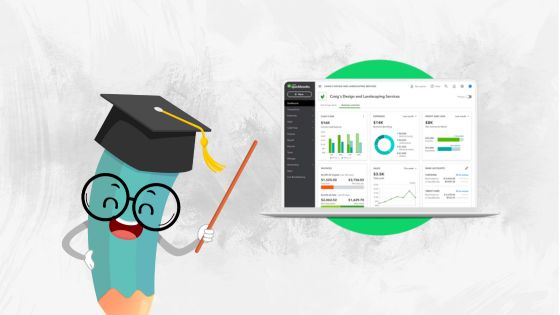Whether you are just starting with QuickBooks or have been using it for a while, you can learn new tips and tricks to make your bookkeeping more efficient. This guide will cover everything from basic functionality to more advanced features.
One of the best ways to increase productivity is by using keyboard shortcuts. This will save you time and effort while also improving your efficiency.
Customizing the Interface
When it comes to invoices, you want to ensure they align with your company’s branding and visual identity. This will help to reinforce your brand image and create a positive impression on your clients. It will also help you generate payments promptly and minimize cash flow problems.
One of the best things about QuickBooks is that it offers a variety of customization options, allowing you to tailor the interface to your specific needs. For example, you can customize the layout and color scheme and change the icons and tools on the toolbar. You can even use keyboard shortcut keys to save time and increase efficiency.
Are invoices piling up on your desk like paper blizzards? Don’t let vendor chaos conquer your business! QuickBooks has your back with its search and filter magic. This handy tool lets you easily navigate invoice avalanches, pinpointing specific bills in a flash. No more sifting through endless paperwork or worrying about double-paying vendors. QuickBooks keeps your finances organized and always pays the correct bill at the right time. Unleash the power of this financial fortress with the QuickBooks guide – your roadmap to stress-free invoice management and confident decision-making.
Customizing the Chart of Accounts
A customized chart of accounts helps businesses gain insight into their financial health at a granular level. It helps them see revenue generation trends and expense patterns associated with procurement activities within their operations.
Creating a custom chart of accounts is important because it allows a business to track all its accounts according to accounting standards and practices set by GAAP (generally accepted accounting principles) or IFRS (international financial reporting standards). The chart of accounts should be easy to use, organized logically, and include a balance sheet outlining all assets, liabilities, and equity the company owns.
In QuickBooks, the chart of accounts can be accessed by clicking on the gear icon and selecting Chart of Accounts. This will display a list of all the accounts in the general ledger that are categorized by type. You can create new accounts by choosing the Add Account option in the Chart of Accounts window.
Customizing Reports
QuickBooks is one of the leading software tools for businesses, and it’s incredibly versatile. You can invoice clients, track expenses, and even integrate with merchant services. It also offers flexible pricing, a free 30-day trial, and a monthly fee.
With QuickBooks, you can create custom reports that suit your business’s unique needs. Whether you need to harness consumer voices to inform product development, keep tabs on trends to guide marketing campaigns, or stay ahead of the competition, QuickBooks allows you to customize reports and dashboards around your parameters.
You can connect your bank and credit card accounts to QuickBooks, automatically downloading and categorizing bills and expenses. You can then easily track how much your customers owe you by running an accounts receivable (A/R) aging report. Likewise, you can track billable expenses incurred by your employees and subcontractors. You can also use QuickBooks to manage payroll, with features like same-day direct deposits and timesheet approvals.
Customizing Invoices
A personalized invoice can be a great way to build customer loyalty and increase your chances of getting paid on time. Plus, it’s an opportunity to reinforce your brand and set your business apart from others that use generic invoice templates.
The QuickBooks Online Plus suite allows you to customize your invoices to match your brand and client information. You can also add a logo, custom fields, and more. In addition, you can choose to email or print your invoices.
You can customize your invoices to include the invoice number, date, and payment terms. This helps clients understand exactly what they’re paying for and when they need to pay. You can even add a payment method, such as a credit card, to simplify the process. In addition, you can integrate QuickBooks with other applications like merchant services, payroll, and time to streamline your bookkeeping. This can save you valuable time that would otherwise be spent reconciling your accounts.




















